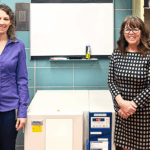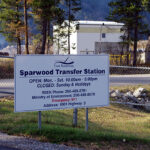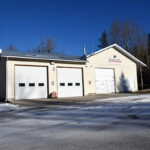Home »

Only ethical course is to transition away from fossil fuels
Letter to the Editor
I read with dismay Gerry Warner’s column ‘The paradox of global warming and Elizabeth Lake’ last week. I’m sure that no one is surprised to see our well-loved local contrarian take a flight of fancy on climate change, but the issue is of such overwhelming importance that I felt compelled to set the record straight.
First off, Mr. Warner acknowledges that one particular week of weather is not to be confused with the climate, which is a long term average of temperature, precipitation, etc. That’s totally correct and an important distinction to make.
But then, Mr. Warner slips into a popular climate change denialist argument: that climate models are merely “models” and not proven facts. Unfortunately, due to the one-way nature of time, it is impossible to prove any fact about the future. All that we can do is take our scientific understanding of the world, combine it with the best data we have from the past, and create a model to make the best predictions we can.
And that’s exactly what thousands of climate scientists are doing every day: collecting data and building models. Until time travel is invented, we’ll just have to settle for the best available science. We don’t have the luxury of waiting to see how this turns out because our models are predicting a very grim future if we continue on our current carbon emission path.
Mr. Warner also suggests that a case of scientific fraud in the first half of the century, where two scientists faked the discovery of an early human skull – the famous Piltdown man, is somehow comparable to thousands of scientists working in the open on one of the most important issues facing the world.
Finally, Mr. Warner points out that the Earth’s climate used to be much warmer. There is no scientific debate on this point: the Earth has, at many points in the geological past, been much warmer. When the Earth was much warmer, carbon dioxide levels in the atmosphere were much higher. This doesn’t change the reality that the tons upon tons of carbon dioxide and other greenhouse gases we are pumping into the atmosphere are going to change our climate very quickly, nor that we are going to harm ourselves by doing so. In fact, this is just another piece of evidence linking carbon levels and climate change.
As Mr. Warner points out, our climate models have uncertainties when we look forward 100 years. However, we fully understand how carbon dioxide and other greenhouse gases trap the Earth’s heat and warm the planet. The same principle applies when we crawl under our blankets on a cold winter night. We know that the extra heat from greenhouse gases will melt glaciers and ice caps causing sea levels to rise, increase droughts and floods, and cause extinction of many species. We can’t know the future exactly, but we know more than enough to act now.
The biggest uncertainty in our climate models is not how the Earth will react, but what us humans will do. If we stop burning oil, gas, and coal in a matter of a few years, we are likely to see warming of about half a degree and sea level rise of about 40cm by the end of the century. If we continue to increase emissions, we’ll see multiple degrees of warming and sea levels rise over a metre and, eventually, we’ll change the climate enough to disrupt the Earth’s ability to support our civilization. In the face of that much uncertainty about human action, a little bit of uncertainty in our climate models is nothing.
I’m glad those thousands of scientists are out there, refining their models so we can predict ever more accurately how our climate will change. But for myself, Mr. Warner, and the rest of humanity, we don’t need to know precisely how much we will disrupt the climate. With what we know now, the only ethical course is to transition away from fossil fuels as quickly as possible.
That means we need to stop drilling for oil, digging coal out of the earth, and fracking for gas. That means we need to adopt alternative energy sources and we need to use energy more efficiently. If we want to avert a climate change disaster, we need to do this now.
We are very lucky to live in a country with such abundant renewable resources, so let’s take the lead and show the world the way forward.
Mr. Warner might rather go skating than worry about climate change. I empathize – confronting the reality of climate change isn’t pleasant – but burying our heads in the abundant fresh snow won’t help. On the weekend, I was out skating on Stoney Lake where I was greeted by a family with young children. Let’s work to make a future where those children, and their children, will still be able to skate on local lakes.
Lars Sander-Green,
Climate Coordinator, Wildsight







